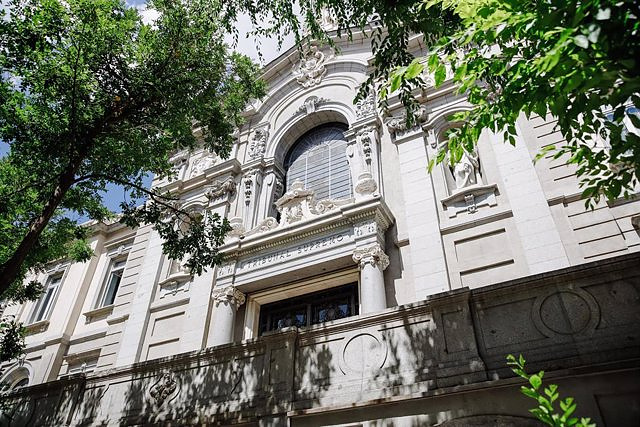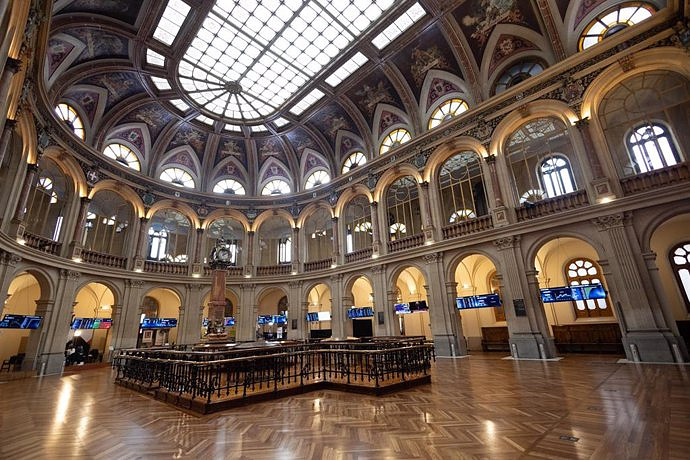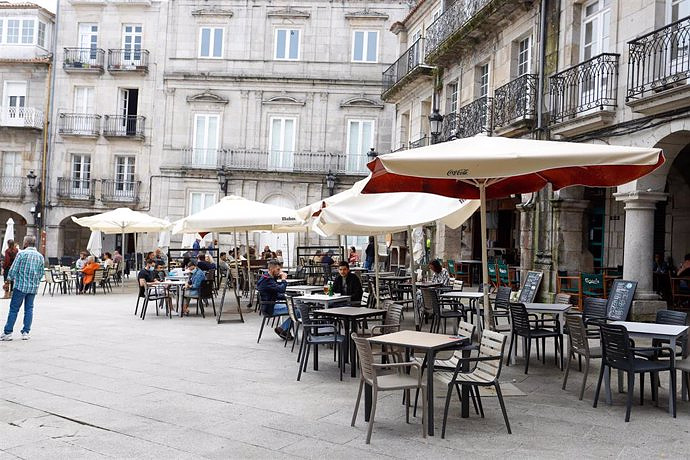The sentence says that the use of the victim's router to activate the camera supposes a "plus of seriousness"
MADRID, 27 Ene. (EUROPA PRESS) -
The Criminal Chamber of the Supreme Court (TS) has confirmed the sentence to four years in prison for a crime of discovery and disclosure of secrets aggravated to a man for installing a surveillance camera in the air conditioning of his ex-partner's bedroom and activating it with the access key of the victim's router.
In the sentence, a presentation by the president of the Second Chamber, Manuel Marchena, it is stated that the use of a personal password represents "a plus of seriousness in the attack on the privacy sphere of any person because it implies an added seizure of a data of personal character".
According to the proven facts, the woman, who had had a four-year relationship with him, asked him in 2018 to take care of their son at her home, in the city of Elche. He took the opportunity to install the device, "whose lens was directed at the bed, with the intention of controlling" her ex-partner.
"To connect to the router, and activate the operation of the camera, he used the private password" of the woman, recalls the sentence. This situation lasted until she changed the access passwords to her router.
In September of that year, the victim detected the existence of the aforementioned camera and filed a complaint, although - remember the resolution - he had previously filed another against the defendant on suspicion that he had installed a hidden Skype on his computer and through which, when the victim used his own laptop, the defendant could control everything he did, spoke or who was at home. THE UNCONSENTED AUTHORIZATION OF THE ROUTER
However, the Supreme Court affirms that the facts included in the sentence fully fit into the crime for which he has been convicted and points out that the aggravation of the sentence does not derive, as the defense seems to understand, from the capture of some images by means of a recording device hidden in the air conditioner and aimed at the bed, but the "inconsensual use" of the router password.
The convicted person in his appeal in cassation before the Supreme Court considered that the Penal Code had been improperly applied to the extent that "it is not possible to understand what kind of personal data of the alleged victim he would have used without his authorization, other than those images that could have been captured from inside the house".
He reasoned that access to the Wi-Fi password, which would have allowed the defendant to activate the recording device, had the consent of the complainant, given that both had shared a home for several years.
In the resolution, the court analyzes the concept of personal data included in Regulation (EU) 2016/679 of the European Parliament and of the Council, of April 27, 2016, regarding the protection of natural persons with regard to the treatment of your personal data and to the free circulation of this data.
The Chamber indicates that any personal identification number and, more specifically, "an online identifier" constitutes personal data subject to protection. Hence -according to the ruling- that any numerical or alphanumeric series that allows access to any telematic service is data from an unidentified, but perfectly identifiable person.
In fact, it explains that this numbering capable of providing an enabling response for access to an automated service replaces the physical identification with a virtual identification, associated with that uniquely owned key.
It adds that in this case the improperly used router password was the one that, as expressed in the first instance judgment, allowed the defendant to obtain the images that compromised the privacy of the victim.
The Chamber clarifies that it does not address, to the extent that it has not been the subject of debate, the intense impact of the facts declared proven in what has been called the hard core of privacy, namely, "the invasion of that space of exclusion that every citizen draws in front of the others".
And it is that the defendant "placed a surveillance camera inside the air conditioning unit, located in the room (...), whose lens was directed at the bed, with the intention of controlling (...)". "It is not difficult to imagine the effect that this interference by the defendant could have, during a period of time that in the most favorable hypothesis exceeded two months, in the space of privacy that defines the bedroom of any person," the court underlines. .
As a consequence, it dismisses the appeal filed by the convicted person against the ruling of the Provincial Court of Alicante that confirmed the one handed down by a Criminal Court of Elche.
In addition to a four-year prison sentence, the court sentence imposed on the appellant as the perpetrator of a crime of discovery and disclosure of secrets, with the aggravating circumstance of kinship, the prohibition to approach less than 300 meters from his ex-partner, his address, place of work or any other where it is located, as well as communicate with it by any means, physical or telematic, for 5 years. In his appeal, he complained about the lack of proportionality of the sentence imposed on him and maintained that this key was known.

 Exploring Cardano: Inner Workings and Advantages of this Cryptocurrency
Exploring Cardano: Inner Workings and Advantages of this Cryptocurrency Seville.- Economy.- Innova.- STSA inaugurates its new painting and sealing hangar in San Pablo, for 18 million
Seville.- Economy.- Innova.- STSA inaugurates its new painting and sealing hangar in San Pablo, for 18 million Innova.- More than 300 volunteers join the Andalucía Compromiso Digital network in one month to facilitate access to ICT
Innova.- More than 300 volunteers join the Andalucía Compromiso Digital network in one month to facilitate access to ICT Innova.-AMP.- Ayesa acquires 51% of Sadiel, which will create new technological engineering products and expand markets
Innova.-AMP.- Ayesa acquires 51% of Sadiel, which will create new technological engineering products and expand markets Duro Felguera announces the resignation of three directors after having fulfilled the assigned functions
Duro Felguera announces the resignation of three directors after having fulfilled the assigned functions STATEMENT: BLUETTI launches the Solar program in Germany
STATEMENT: BLUETTI launches the Solar program in Germany Sánchez avoids clarifying whether Ribera will be a candidate on 9J but places her at the level of Calviño and Borrell, with European positions
Sánchez avoids clarifying whether Ribera will be a candidate on 9J but places her at the level of Calviño and Borrell, with European positions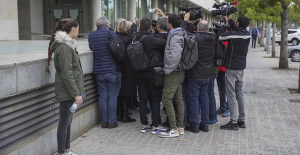 Seven CCAA, Ceuta and Melilla did not execute the Equality budget against sexual exploitation of minors under guardianship
Seven CCAA, Ceuta and Melilla did not execute the Equality budget against sexual exploitation of minors under guardianship How Blockchain in being used to shape the future
How Blockchain in being used to shape the future Not just BTC and ETH: Here Are Some More Interesting Coins Worth Focusing on
Not just BTC and ETH: Here Are Some More Interesting Coins Worth Focusing on LIFE SPOT manages to develop new green treatments that eliminate groundwater contamination
LIFE SPOT manages to develop new green treatments that eliminate groundwater contamination València Game City is born to promote the video game industry and position this city as a leader in the sector
València Game City is born to promote the video game industry and position this city as a leader in the sector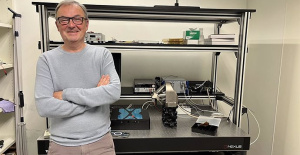 A team of UPV and iPRONICS manufactures the first programmable and multifunctional photonic chip on the market
A team of UPV and iPRONICS manufactures the first programmable and multifunctional photonic chip on the market 'Science and Reeds' returns with talks about "the mystery of the lost socks" or the vinegar fly
'Science and Reeds' returns with talks about "the mystery of the lost socks" or the vinegar fly A million people demonstrate in France against Macron's pension reform
A million people demonstrate in France against Macron's pension reform Russia launches several missiles against "critical infrastructure" in the city of Zaporizhia
Russia launches several missiles against "critical infrastructure" in the city of Zaporizhia A "procession" remembers the dead of the Calabria shipwreck as bodies continue to wash up on the shore
A "procession" remembers the dead of the Calabria shipwreck as bodies continue to wash up on the shore Prison sentences handed down for three prominent Hong Kong pro-democracy activists
Prison sentences handed down for three prominent Hong Kong pro-democracy activists ETH continues to leave trading platforms, Ethereum balance on exchanges lowest in 3 years
ETH continues to leave trading platforms, Ethereum balance on exchanges lowest in 3 years Investors invest $450 million in Consensys, Ethereum incubator now valued at $7 billion
Investors invest $450 million in Consensys, Ethereum incubator now valued at $7 billion Alchemy Integrates Ethereum L2 Product Starknet to Enhance Web3 Scalability at a Price 100x Lower Than L1 Fees
Alchemy Integrates Ethereum L2 Product Starknet to Enhance Web3 Scalability at a Price 100x Lower Than L1 Fees Mining Report: Bitcoin's Electricity Consumption Declines by 25% in Q1 2022
Mining Report: Bitcoin's Electricity Consumption Declines by 25% in Q1 2022 Oil-to-Bitcoin Mining Firm Crusoe Energy Systems Raised $505 Million
Oil-to-Bitcoin Mining Firm Crusoe Energy Systems Raised $505 Million Microbt reveals the latest Bitcoin mining rigs -- Machines produce up to 126 TH/s with custom 5nm chip design
Microbt reveals the latest Bitcoin mining rigs -- Machines produce up to 126 TH/s with custom 5nm chip design Bitcoin's Mining Difficulty Hits a Lifetime High, With More Than 90% of BTC Supply Issued
Bitcoin's Mining Difficulty Hits a Lifetime High, With More Than 90% of BTC Supply Issued The Biggest Movers are Near, EOS, and RUNE during Friday's Selloff
The Biggest Movers are Near, EOS, and RUNE during Friday's Selloff Global Markets Spooked by a Hawkish Fed and Covid, Stocks and Crypto Gain After Musk Buys Twitter
Global Markets Spooked by a Hawkish Fed and Covid, Stocks and Crypto Gain After Musk Buys Twitter Bitso to offset carbon emissions from the Trading Platform's ERC20, ETH, and BTC Transactions
Bitso to offset carbon emissions from the Trading Platform's ERC20, ETH, and BTC Transactions Draftkings Announces 2022 College Hoops NFT Selection for March Madness
Draftkings Announces 2022 College Hoops NFT Selection for March Madness